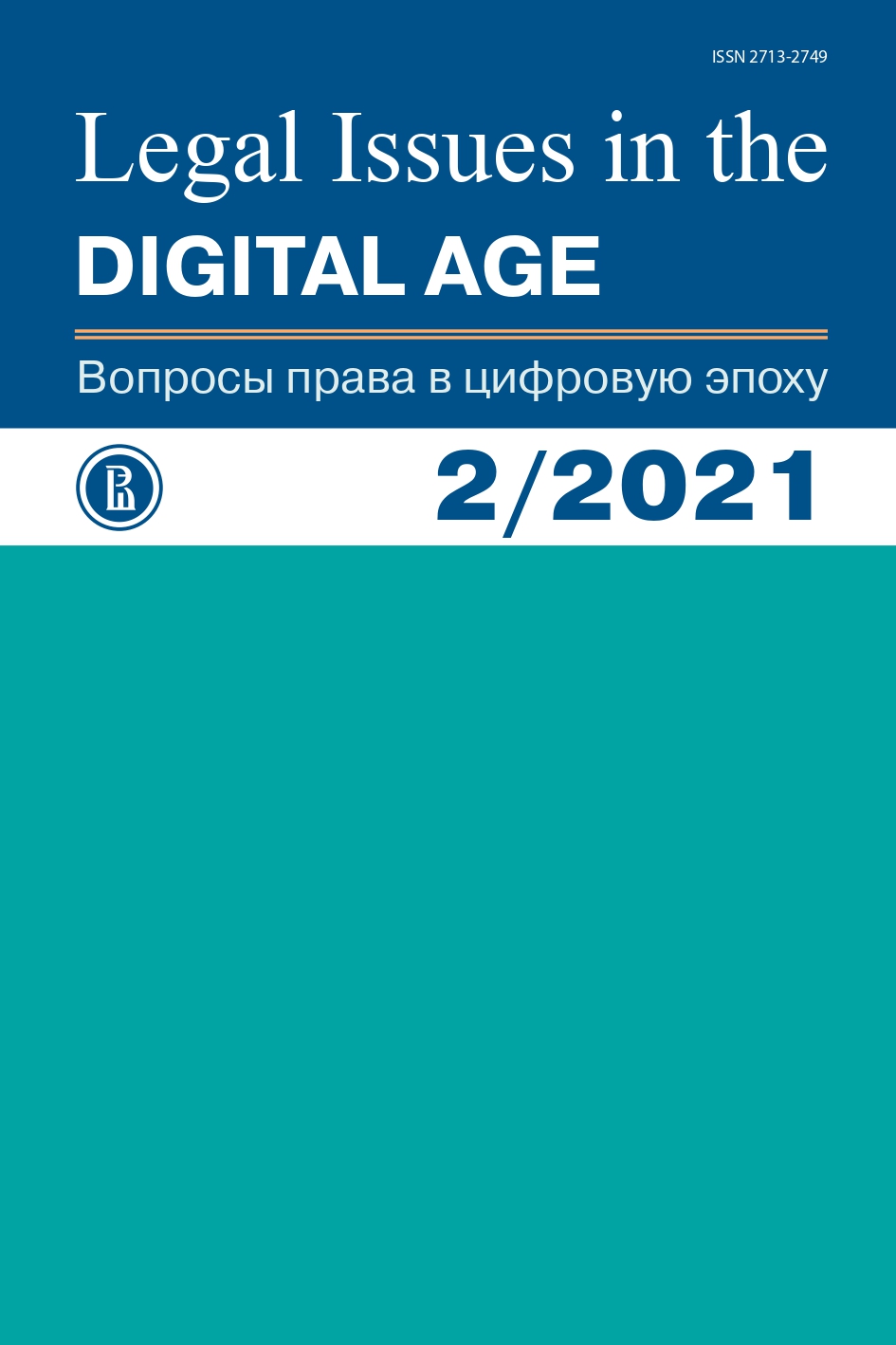On the Prospects of Digitalization of Justice
Аннотация
The article considers the problem of digitalization of judicial activities in the Russian Federation and abroad. Given the fact that in the modern world elements of digital (electronic) justice are gaining widespread adoption, the article presents an analysis of its fundamental principles and distinguishes between electronic methods of ensuring procedural activity and digitalization of justice as an independent direction of transformation of public relations at the present stage. As a demonstration of the implementation of the first direction, the article presents the experience of foreign countries, Russian legislative approaches and currently being developed legislative initiatives in terms of improving the interaction of participants in the procedure through the use of information technologies. The authors come to the conclusion that the implemented approaches and proposed amendments are intended only to modernize the form of administration of justice with new opportunities to carry out the same actions (identification of persons participating in the case, notification, participation in the court session, etc.) without changing the essential characteristics of the proceedings. The second direction, related to electronic (digital) justice, is highlighted from the point of view of the prospects and risks of using artificial intelligence technologies to make legally significant decisions on the merits. At the same time, the authors argue that the digitalization of justice requires the development and implementation of the category of justice in machine-readable law, as well as special security measures of both technological and legal nature.
Литература
Aletras N., Tsarapatsanis D., Preoţiuc-Pietro D. (2016) Predicting judicial decisions of the European Court of Human Rights: a natural language processing perspective. Peer Journal of Computer Science, no 2, p. 93.
Broomhall B. (2003) International Justice and the International Criminal Court: between Sovereignty and the Rule of Law. Oxford: Berg, 215 p. (in Russian)
Dutton Y. (2012) Virtual Witness Confrontation in Criminal Cases: A Proposal to Use Videoconferencing Technology in Maritime Piracy Trials. Vanderbilt Journal of Transnational Law, vol. 45, pp. 1283–1294.
Isaev I.A. (1994) A history of Russian state and law. Moscow: Jurist, 432 p. (in Russian)
Khabrieva T.Y., Chernogor N.N. (2018) The law in the conditions of digital reality. Zhurnal rossiyskogo prava, no 1, pp. 85–102 (in Russian)
Khabrieva T.Y., Lebedev V.M. (2019) Justice in modern world. Мoscow: Kontrakt, 688 p. (in Russian) Khazhipov R.H. (1990) The role of law and morality in the implementation of the essential forces of man. Candidate of Philosophical Sciences Thesis. Ufa, 186 p. (in Russian)
Kucherov I.I. (2017) Elements of the Financial Security and its Legal Support. Zhurnal rossiyskogo prava, no 6, pp. 69–79 (in Russian)
Kuzurmanova I.V. (2011) Administrative activities: system decomposition. Administrativnoe pravo i process, no 1, pp. 37–40 (in Russian)
Livshits R.Z. (1994) Theory of Law. Moscow: Juridicheskaya literatura, 224 p. (in Russian)
Maksyutin M.N. (2008) Theory of the jurisdictional process. Moscow: Prospekt, 224 p. (in Russian)
Medvedev R.F. (2018) The problems of legal regulation of digitalization under modern conditions. Zakonnost’, no 9, pp. 14–15 (in Russian)
Pizzi W. (2019) Trials without truth: why our system of criminal trials has become an expensive failure and what we need to do to rebuild it.Moscow: Prospekt, 280 p. (in Russian)
Povetkina N.A., Ledneva Y.V. (2018) Fintekh and Redtekh: Boundaries of Legal Regulation. Pravo. Zhurnal Vyssshey shkoly ekonomiki, no 2, pp. 46–67 (in Russian)
Reshetnyak V.I., Smagina E.S. (2017) Information technologies in civil proceedings (Russian and foreign experience). Moscow: Norma, 304 p. (in Russian)
Rudnev V., Pechegin D. (2020) Impact of leading digital technologies on criminal proceedings: case of video conferencing. 6th international conference on social, economic, and academic leadership. DOI: 10.2991/assehr.k.200526.047
Saksonov A.V. (2016) Right, the art of goodness and justice. Voprosy studencheskoi nauki, no 1, pp. 36–38 (in Russian)
Theory of criminal procedure: competitiveness (2013) N.A. Kolokolov (ed.). Moscow: Norma, 368 p. (in Russian)
Vekhov V.B. (2008) Fundamentals of forensic doctrine of the study and use of computer information and means of its processing. Volgograd: University press, 404 p. (in Russian)
Авторы, присылающие рукописи для рассмотрения к публикации в Журнале, принимают Политику лицензирования, авторских прав, открытого доступа и использования репозиториев.









